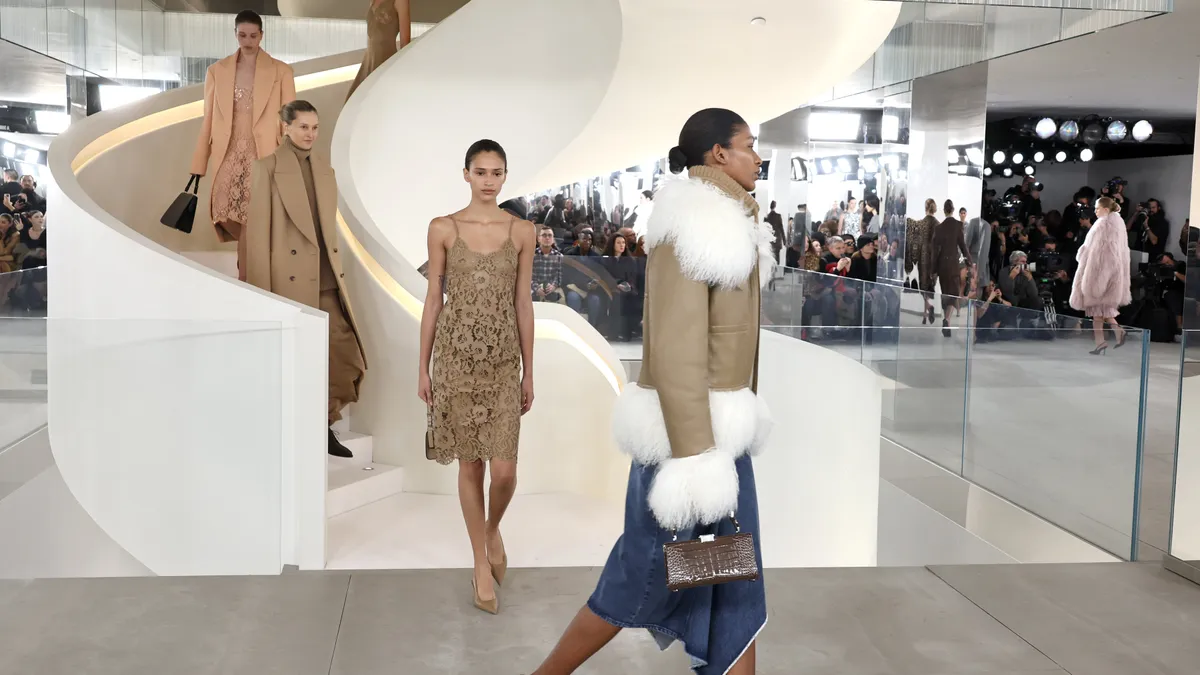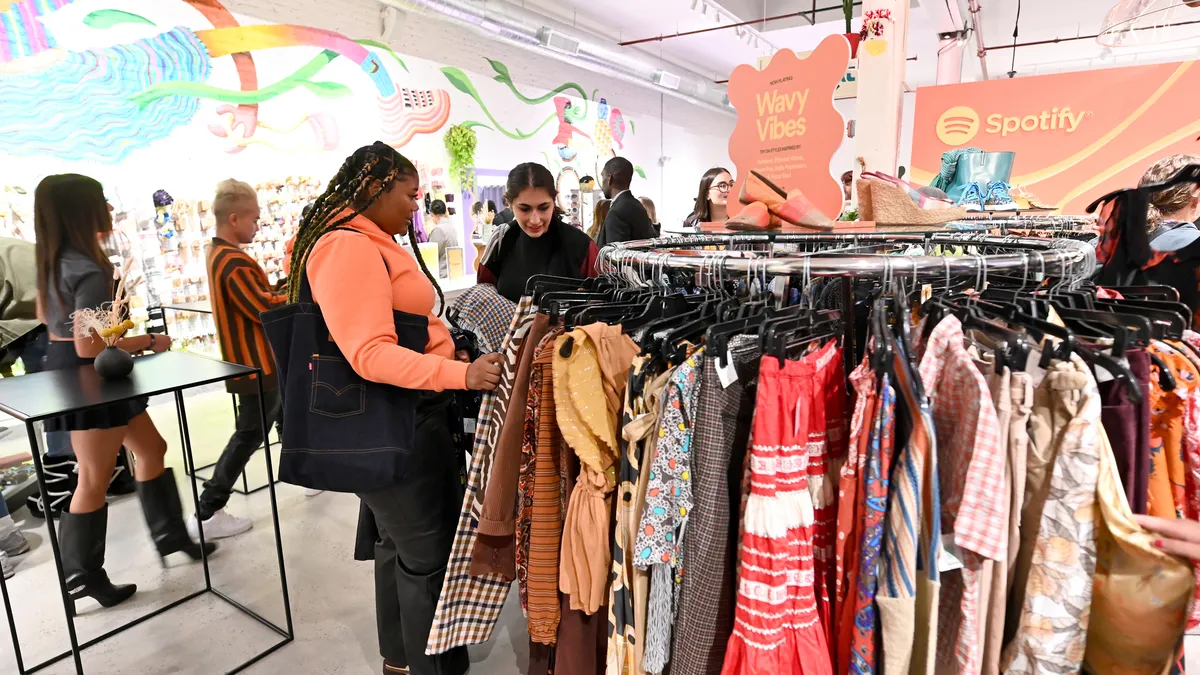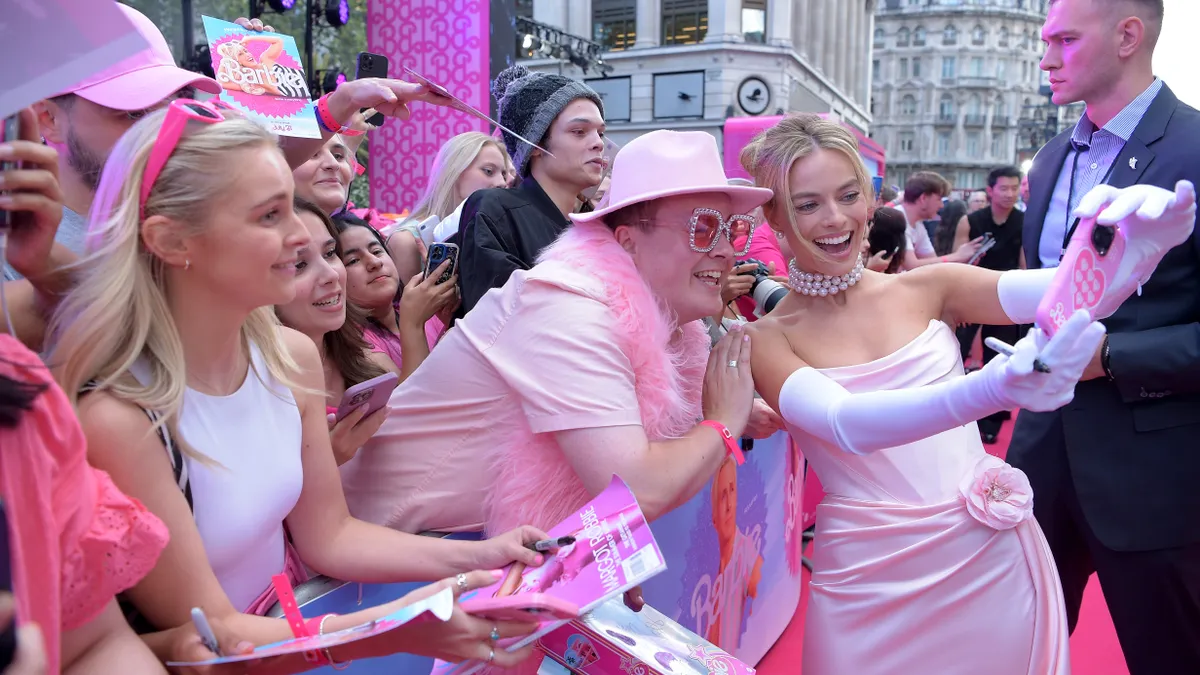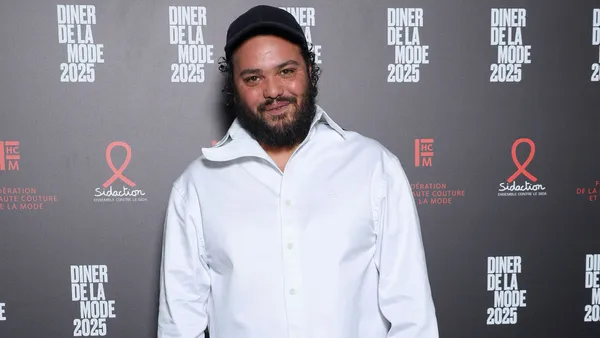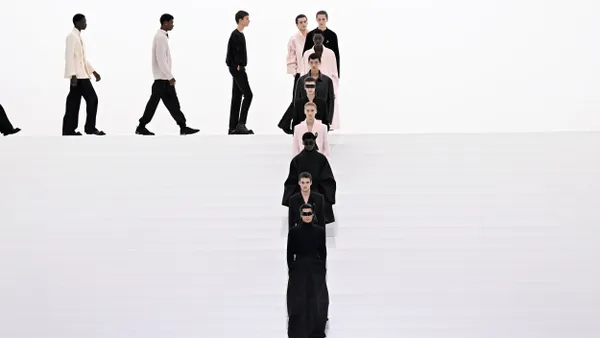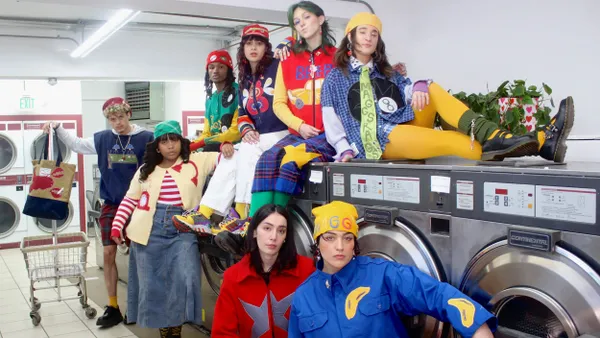Dive Brief:
- Capri Holdings posted a fourth quarter revenue decline of 8.4% to $1.2 billion year over year, according to a Wednesday earnings release. Full-year revenue fell 8% to $5.2 billion.
- Revenue for all three of the company’s brands fell for the quarter. Michael Kors saw the biggest drop at 9.7%, followed by Jimmy Choo, which fell 9.3%, and Versace which decreased 3.6%.
- The earnings come just over a month after the FTC sued to block Capri’s merger with rival fashion conglomerate Tapestry, which owns Coach, Kate Spade and Stuart Weitzman. If the lawsuit fails, the resulting $8.5 billion acquisition would create one of the largest luxury companies in the U.S.
Dive Insight:
Capri attributed fourth quarter revenue declines at each brand to “a softening demand globally for fashion luxury goods.” Nonetheless, other companies in the sector such as Prada and Zegna have reported robust revenue growth, suggesting that the market’s challenges are uneven.
Revenue at Capri has been declining steadily in recent years, with the biggest problems coming from Michael Kors, which represented approximately 68% of the company’s total in fiscal year 2024. The brand’s revenue dropped from approximately $4 billion in fiscal 2022 to $3.5 billion in the current fiscal year. By contrast, Jimmy Choo and Versace, which represent 12% and 20% of the company’s revenue respectively, have dipped only slightly since 2023.
Current fourth quarter revenue declines were in line with these prior trends, and John Idol, Capri chairman and CEO, said the company was disappointed with the results.
“In our retail channel, sales trends improved sequentially in the Americas and EMEA while trends slowed in Asia,” Idol said in the release. “In our wholesale channel, sales remained challenged.”
Idol said the company was focused on strategic initiatives “to deliver long-term sustainable growth” to each of the brands.
In the release, Idol addressed the FTC lawsuit, which is in part based on the FTC’s assertion that a merger between Capri and Tapestry would give the resulting company a dominant share of the “accessible luxury” handbag market — a term the FTC said Tapestry itself coined.
“We strongly disagree with the FTC’s decision and firmly believe in the merits of this acquisition,” Idol said in the release. “The market realities, which the government’s challenge ignores, overwhelmingly demonstrate that this transaction will not limit, reduce, or constrain competition. Tapestry and Capri operate in the fiercely competitive and highly fragmented global fashion luxury industry. Consumers have hundreds of handbag choices at every price point across all channels, and barriers to entry are low.”
Idol said that Capri planned “to vigorously defend this case in court alongside Tapestry” and the company expects the merger to ultimately be successful.
While Capri Holdings declined to provide forward guidance due to the pending merger proceedings, the company said it anticipates free cash flow “to normalize in fiscal 2025.”



